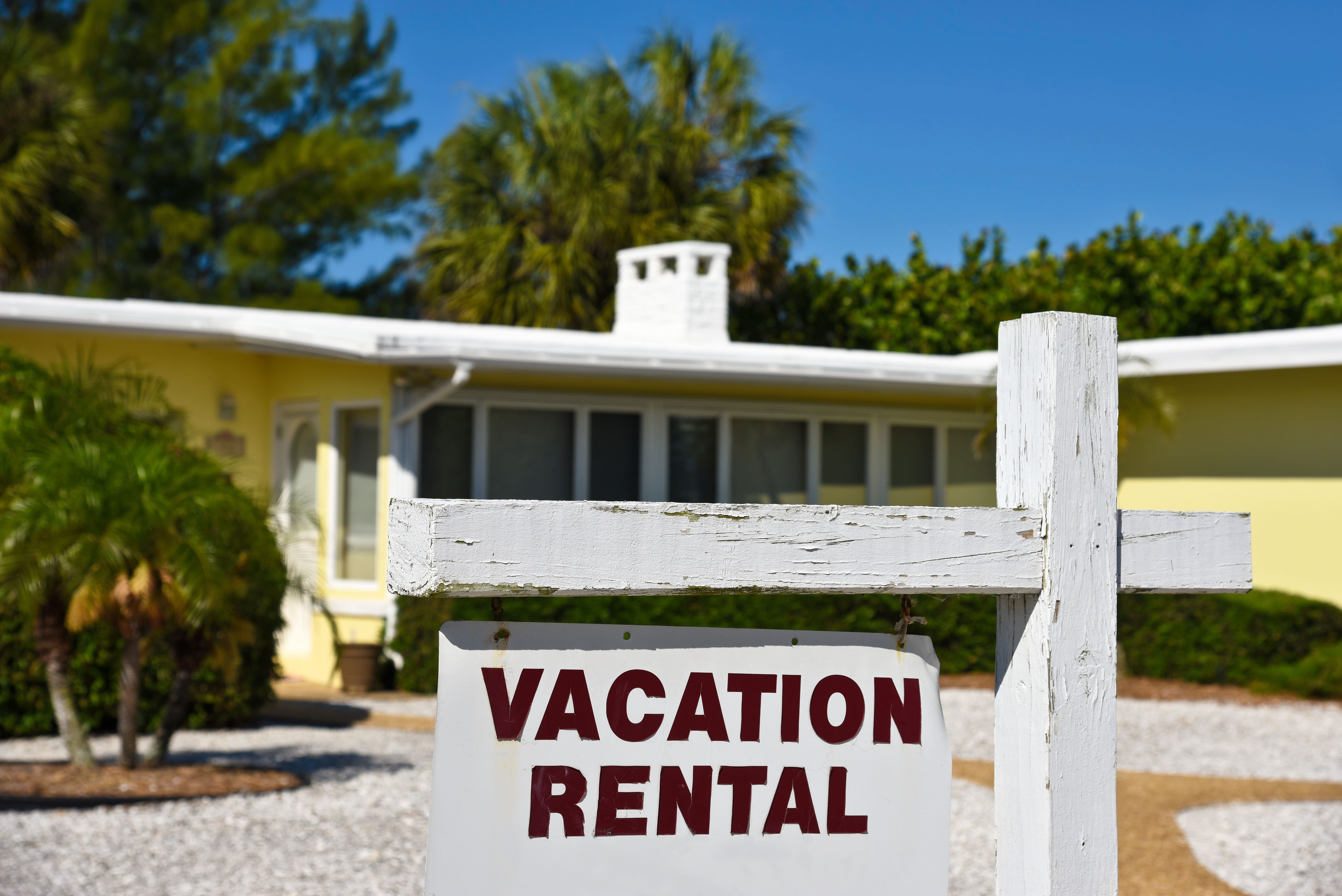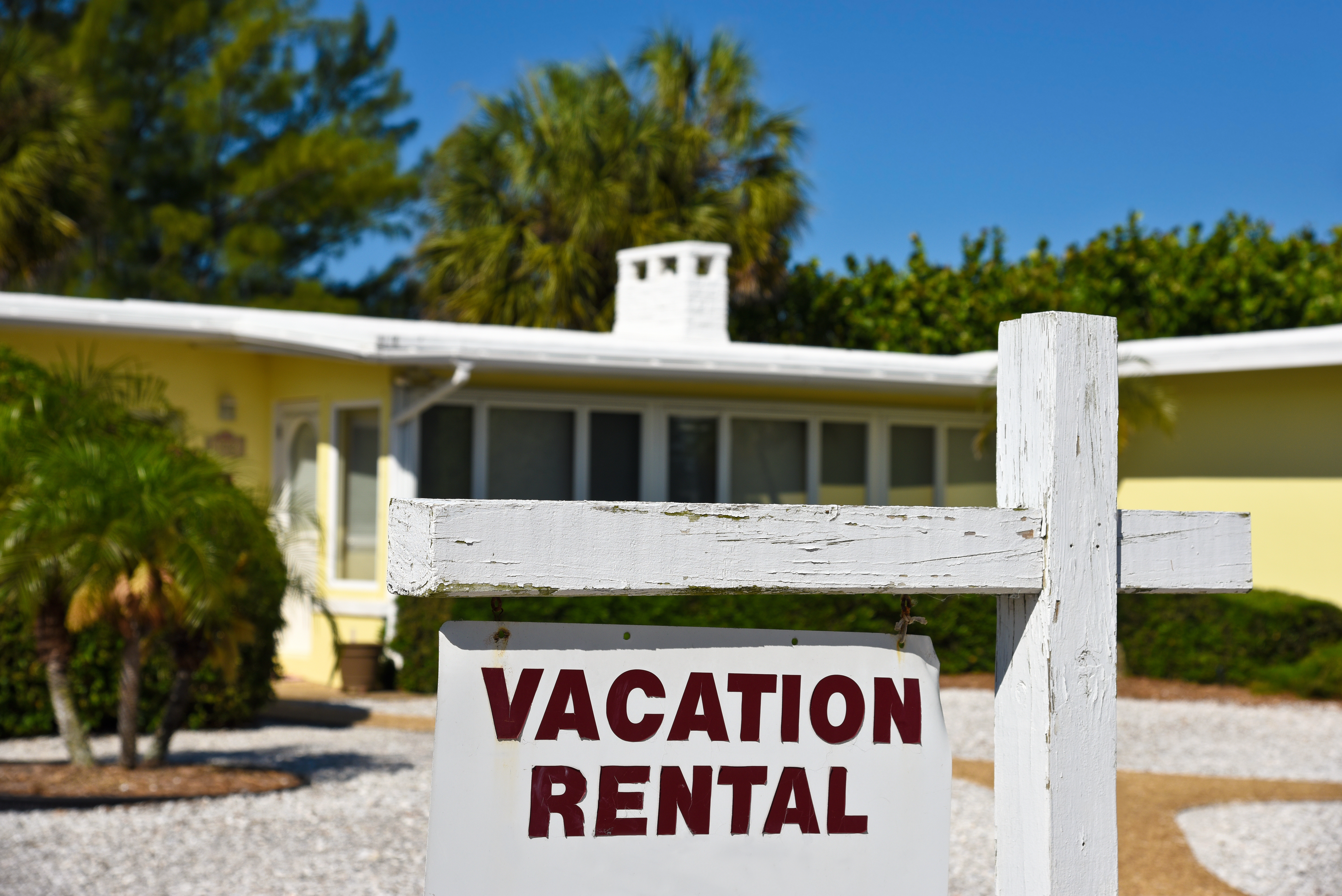Renting Out Your Kissimmee Property: Long-Term vs. Short-Term Rentals

Are you a property owner, thinking about renting out your property in Kissimmee? Just outside of Orlando FL, a very magical and profitable place exists.
You can opt for a Short-Term Rental (STR) (vacation rental) or a long-term rental, each with its own benefits and challenges. The right choice depends on your investment goals, involvement level, and tenant preferences.
This guide compares both strategies, focusing on Kissimmee, FL—a prime location for vacation and long-term rentals. Kissimmee has famous attractions, family-friendly amenities, warm weather all year, and great golf courses. This makes it a good place for rentals.
Considering a long-term investment or Kissimmee vacation rental? Let us help you find the best fit for your goals!
What is a Vacation Rental?

A vacation house rental is a fully furnished home rented for short stays, typically from a few nights to a few weeks. Some owners allow extended stays (30+ days), though these are becoming less common in Kissimmee.
Why Choose a Vacation Rentals in Kissimmee?
Vacation homes in Osceola County, particularly Kissimmee, are in high demand because of their wide range of unique features, such as:
- Private pools and hot tubs
- Game rooms and themed spaces
- High-speed Wi-Fi for remote work
- Spacious layouts for families & groups
- Outdoor activities
Many travelers choose Kissimmee vacation home rentals and villa rentals instead of a hotel room for a “home away from home” feel. Some even being pet friendly for those animal lovers.
This makes Kissimmee a great place for short-term rental investments. Its proximity to the major attractions in Kissimmee and the surrounding area such as Walt Disney World, Universal Studios, and Sea World further boosts demand.
What to Know About Kissimmee Vacation Rental Homes
Vacation rentals or short term rentals in Kissimmee Florida require active management, including:
- Listing & marketing on Airbnb, VRBO (vacation rental by owner), or through a property manager
- Frequent cleaning, repairs, and upkeep
- Fully equipped for guest communication & issue resolution
- Seasonal fluctuations in bookings
- Maintaining high reviews for success
- Rental prices
How Do Vacation Rentals Make Money?
Unlike long-term rentals, vacation homes charge per night and often include extra fees, such as:
- Cleaning Fee
- Laundry Fee
- Occupancy Tax
- Platform Booking Fees
With strong demand but hands-on management needs, vacation rentals can be highly profitable—if managed effectively!
Is a Vacation Rental Right for You?

Consider a vacation rental if:
- Higher income potential appeals to you (with seasonal fluctuations).
- You’re comfortable managing frequent guest turnover and property upkeep.
- Your property is near tourist attractions, beaches, or entertainment hubs.
- You’re prepared for marketing, guest communication, and regular maintenance.
If passive income and long-term stability are your priorities, a long-term rental may be a better fit.
Seasonal Flexibility
Vacation rentals can generate high income during peak seasons but require active management year-round. Platforms like Airbnb and VRBO help maximize exposure, but staying competitive means:
- Maintaining top-notch reviews
- Updating photos and listings
- Responding quickly to guest inquiries
Vacation rentals have many guests coming and going. This means they need regular cleaning, restocking, and marketing. Because of this, owners must be actively involved in managing their properties.
Since income is seasonal, budgeting for lower occupancy months is essential. Owners should plan for expenses like cleaning, utilities, and repairs to maintain profitability.
What is a Long-Term Rental?
A long-term rental is a property leased for six months or more, typically on a 12-month lease.
Unlike vacation rentals, long-term rentals:
- Provide consistent rental income
- Require less active management
- Have lower marketing and turnover costs
For investors who want consistent returns, long-term rentals are a good choice. They require less daily effort than vacation homes.
Why Choose a Long-Term Rental?

Why Choose a Long-Term Rental?
Long-term rentals attract tenants seeking stability, such as:
- Local professionals and families
- Remote workers relocating to Florida
- College students attending nearby universities
- Retirees looking for permanent housing
These rentals require less maintenance and marketing than vacation rentals. With steady monthly rent payments, they offer predictable income and reduced vacancy risks.
Pros & Cons of Long-Term Rentals
Pros:
- Steady monthly rental income
- Lower expenses for cleaning and utilities
- Fewer turnovers, reducing marketing costs
- More passive investment compared to vacation rentals
Cons:
- Fixed rental income – No seasonal rate increases
- Tenant challenges – Late payments, lease violations, or evictions
- Longer vacancies – Finding new tenants may take months
- Property wear and tear over time
Is a Long-Term Rental Right for You?
Consider a long-term rental if:
- You prefer passive income without frequent guest turnover
- You want consistent cash flow instead of fluctuating seasonal income
- You’re comfortable with longer tenant stays and lease agreements
If you enjoy hospitality and want to maximize earnings per night, a vacation rental may be the better fit.
Financial Considerations for Vacation Rentals & Long-Term Rentals

Vacation Rentals: High Income, High Costs
- Higher nightly rates with premium amenities (pools, game rooms)
- Frequent costs: cleaning, marketing, maintenance
- Management fees: ~20% of rental income
- Seasonal income fluctuations
Long-Term Rentals: Steady & Low Maintenance
- Consistent monthly income with lower expenses
- Less turnover, reducing marketing & maintenance costs
- Lower management fees than vacation rentals
- Stable cash flow with minimal involvement
Regulations & Considerations in Kissimmee

Regulations & Considerations in Kissimmee
Before choosing a rental strategy, understand local laws and regulations in Kissimmee & Osceola County:
- Vacation Rentals: Some communities restrict short-term rentals—check HOA rules & zoning laws.
- Taxes & Licenses: Vacation rentals require tourist development taxes, while long-term rentals follow different tax rules.
- Property Management: A professional manager can handle guest communication, maintenance, and compliance.
Which Rental Strategy is Right for You?
Choose a Vacation Rental if you:
- Enjoy guest interactions & marketing
- Want higher income potential (with seasonal fluctuations)
- Can handle higher management demands
Choose a Long-Term Rental if you:
- Prefer stable, predictable income
- Want less hands-on management
- Need fewer turnovers & lower costs
Both strategies have benefits—your choice depends on your investment goals & management style.
Maximize Your Rental Investment with Allegiant Management Group

Choosing a vacation rental or a long-term rental can lead to success. It all depends on aligning your investment with your goals. Are you looking for the vacation experience, or a full time job. Additionally, how you manage the property is important.
At Allegiant Management Group, we specialize in long-term single-family rentals—it’s what we do best. With 80+ years of combined experience, we provide hassle-free, transparent property management across Kissimmee & Central Florida.
Looking for vacation rental management? We can refer you to top agencies in the area. In some cases, we offer short-term leases based on your property’s needs.
Why Choose Allegiant Management Group?
- Local expertise in the Kissimmee rental market
- Full-service management—from marketing to maintenance
- Maximized rental income with minimal stress
- Dedicated support to help you achieve your investment goals
Contact us today to see how we can help you succeed in Florida’s rental market!
Frequently Asked Questions (FAQs) - Vacation vs. Long-Term Rentals
What is the difference between a short-term rental (STR) and a long-term rental (LTR)?
A short-term rental (STR) is typically leased for days to months, often catering to vacationers or business travelers. A long-term rental (LTR) is leased for six months or more, usually requiring a formal lease agreement. STRs offer flexibility and higher nightly rates, while LTRs provide stability and consistent income.
Which rental strategy is more profitable in Kissimmee, FL?
Short-term rentals (STRs) in Kissimmee, FL tend to be more profitable due to high tourist demand from Disney World and other attractions. STRs generate higher nightly rates but require more management. Long-term rentals (LTRs) offer stable income with less turnover but may yield lower annual revenue.
What are the management responsibilities for each rental type?
Short-term rental (STR) management includes guest communication, cleaning, marketing, dynamic pricing, and maintenance. Long-term rental (LTR) management involves tenant screening, lease enforcement, rent collection, property upkeep, and legal compliance. STRs require frequent attention, while LTRs offer stability with fewer turnovers.
How do short-term rentals make money?
Short-term rentals (STRs) make money by charging nightly rates, often higher than long-term leases. Income comes from booking fees, cleaning fees, and upsells like early check-ins. Profitability depends on occupancy rates, seasonal pricing, and effective management to maximize revenue.
What are the advantages of a long-term rental over a vacation rental?
Long-term rentals (LTRs) offer stable income, lower turnover, and reduced management costs compared to vacation rentals. They require less frequent marketing, cleaning, and guest communication, making them easier to manage. LTRs also face fewer regulatory restrictions and provide consistent occupancy without seasonal fluctuations.
What are the challenges of short-term rentals?
Short-term rentals (STRs) face high turnover, increased management demands, and fluctuating occupancy rates. Owners must handle frequent cleaning, guest communication, and dynamic pricing. STRs also encounter regulatory restrictions, higher maintenance costs, and market competition, impacting profitability and operational complexity.
How much does it cost to manage a short-term rental?
Managing a short-term rental (STR) costs 15%–40% of revenue if using a property manager. Expenses include cleaning ($75–$250 per stay), maintenance, booking fees, utilities, and marketing. Self-management reduces costs but requires time. Dynamic pricing and high occupancy help offset expenses.
What type of tenants do long-term rentals attract?
Long-term rentals (LTRs) attract families, professionals, students, and retirees seeking stable housing. Tenants often prioritize affordability, location, and lease security over short-term flexibility. Reliable renters with steady income provide consistent occupancy, reducing turnover and vacancy risks for landlords.
Can I switch between short-term and long-term rental strategies?
Yes, you can switch between short-term and long-term rental strategies based on market conditions, regulations, and demand. Short-term rentals offer higher income potential but require more management. Long-term rentals provide stability with fewer operational demands. Flexibility depends on local laws, lease agreements, and property setup.
Is there a difference in insurance needs?
Yes, vacation rentals require additional liability insurance due to higher guest turnover, which increases the risk of incidents. Long-term rentals need standard property insurance but may not require as much liability coverage.
How does location impact rental success?
Location plays a key role. Vacation rentals thrive near tourist attractions like theme parks in Kissimmee, while long-term rentals perform well in residential neighborhoods, attracting tenants looking for stability and community. So now is the time to rent in Kissimmee FL.
Disclaimer: This blog is for information purposes only and does not constitute legal, financial, or professional advice. Readers should consult appropriate professionals before making any decisions.
Blog Updated: 04/30/2025



